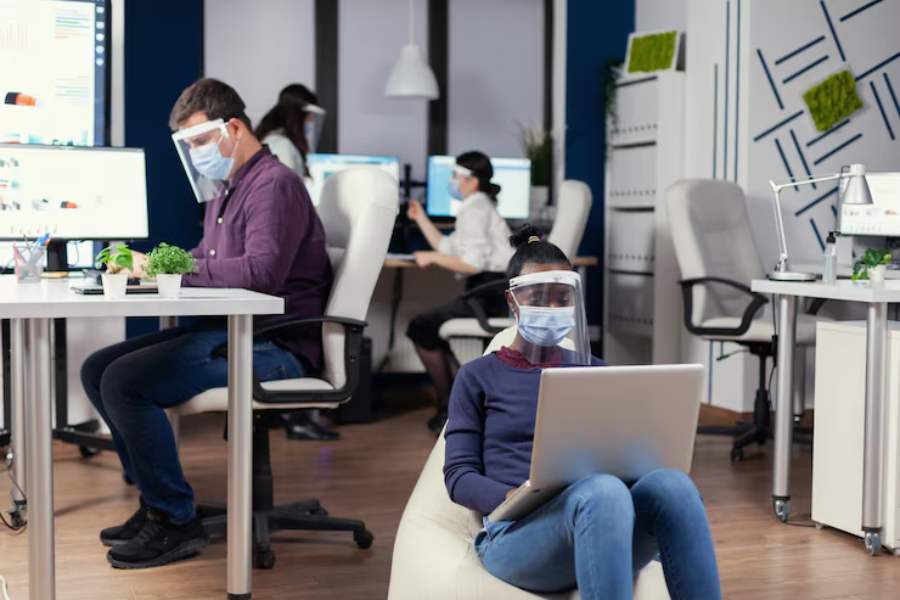Creating a Safe Office: What Staffing Firms Need to Know About Modern Security Tech

In today’s ever-evolving workplace landscape, security technology is no longer a luxury but a necessity. With staffing firms responsible for placing thousands of employees in office settings, ensuring a secure environment is a top priority. From physical access control to cyber protection, modern office security is multi-layered and data-driven. This article explores the essential technologies staffing firms should understand and recommend to their clients to create safer office environments.
Why Office Security Matters for Staffing Firms
Staffing firms often act as the first line of defense in shaping safe workplace cultures. A lack of proper security measures can jeopardize not only the physical safety of temp workers but also expose sensitive business data. Recommending robust security systems not only enhances the client’s trust but also protects the workforce the staffing firm is responsible for placing.
Access Control: The Foundation of Office Security
One of the core components of office security is access control. Traditional lock-and-key systems are outdated and vulnerable. Today, smart access control solutions are favored for their flexibility and audit capabilities.
Modern biometric access control systems, such as those offered by Coram.ai, leverage fingerprint and facial recognition to verify identities and ensure that only authorized personnel gain entry. These systems not only reduce reliance on key cards or PINs but also enhance workplace safety by integrating real-time analytics and access logs for better monitoring and compliance.
Surveillance Systems with AI Capabilities
Modern surveillance isn’t just about cameras capturing footage; it’s about intelligent video analytics. AI-powered cameras can detect unusual behavior, recognize faces, and even identify potential threats like weapons or intrusions.
For staffing firms, recommending such systems ensures the temporary or contract workforce operates in secure surroundings. Real-time alerts and incident logs also allow for rapid response, essential in managing safety during peak staffing periods or shifts.
Cybersecurity Measures for the Digital Workplace
In the age of hybrid work, digital security is as vital as physical security. Temporary staff often bring their own devices or log in to multiple systems, increasing the risk of breaches.
Staffing firms should guide clients toward implementing:
- VPNs and firewalls
- Endpoint protection
- Encrypted communications
- Multi-factor authentication (MFA)
These technologies safeguard sensitive data, especially when onboarding and offboarding staff frequently.
Visitor Management and Identity Verification
Controlling and logging external visitors is a crucial, often overlooked, aspect of office security. Digital visitor management systems allow offices to pre-screen visitors, print temporary badges, and monitor entry and exit times.
Integration with staffing databases ensures temp workers are registered and authorized, avoiding identity mismatches and enhancing transparency in high-traffic workplaces.
Emergency Preparedness and Incident Response Tech
Emergencies from fires to lockdowns require immediate and coordinated responses. Today’s security platforms include mass notification systems and mobile safety apps that provide real-time updates and evacuation instructions.
Firms like Coram also offer emergency management systems powered by AI to assist in scenario planning and risk mitigation. This technology helps ensure staffing firms can recommend comprehensive safety protocols to clients.
Compliance and Data Protection
Adhering to workplace safety and data privacy regulations like OSHA, GDPR, or HIPAA (for healthcare offices) is not optional. Security systems with built-in compliance features, such as audit logs and automated reporting, simplify legal adherence and boost operational transparency.
Staffing firms that guide clients toward such tools not only safeguard their own reputation but also reduce the likelihood of client-side regulatory penalties.
Final Thoughts
Security in the modern office is a shared responsibility and staffing firms are pivotal players. By staying updated on advanced security technologies and advocating for their adoption, firms can position themselves as value-driven partners.
Whether it’s through recommending biometric access control from trusted providers like Coram, or ensuring robust cyber hygiene, prioritizing safety translates directly to employee well-being and business resilience.
FAQs
Why is office security important for staffing firms?
Because staffing firms are responsible for worker placement, ensuring safety directly impacts worker welfare and client satisfaction.
What is biometric access control?
It’s a security method using fingerprint or facial data to grant or restrict access, often used in high-security office areas.
How can AI enhance office security?
AI improves surveillance by identifying threats in real time and optimizing emergency response systems.
Are digital visitor systems necessary?
Yes, they help monitor and control who enters the workplace, improving both security and operational transparency.
What role does cybersecurity play in staffing?
Cybersecurity ensures sensitive worker and company data remains protected, especially with frequent onboarding and device use.
